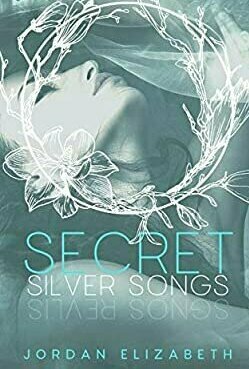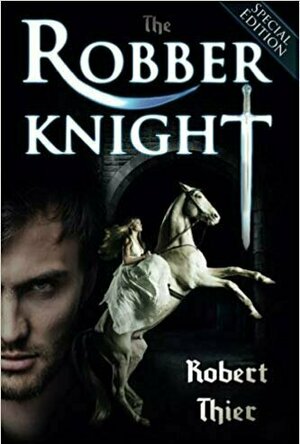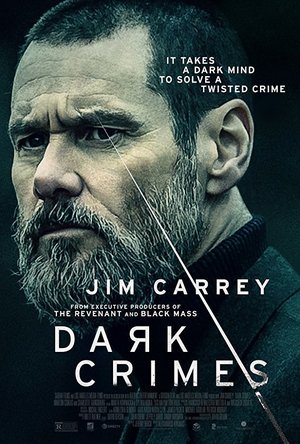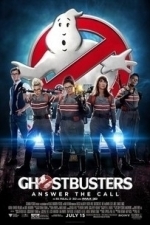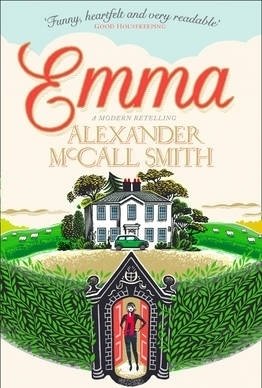Search
Search results

Tecarta Bible
Book and Reference
App
The Tecarta Bible is a beautiful, easy to use, full featured Bible app designed for quick...
Hazel (1853 KP) rated Secret Silver Songs in Books
Jun 28, 2020
Once again, the versatile Jordan Elizabeth returns to the fantasy/paranormal genre with a unique novel, Secret Silver Songs. With vampire-like men and demon-like creatures, the story takes the reader on a journey from an idyllic island to ruined cities, death and destruction.
Protagonist, Jemilla, is the daughter of the city's Singer - a man who can protect the city through the power of song. Life on the island is calm and peaceful; there is no crime, there is no danger, there is no fighting; so, no one was prepared for an invasion of blood-drinking Thistly. When her father is killed along with the majority of the population, there is no one left to save the island. Only men could become Singers, or so they claimed, but Jemilla is hiding a secret - she can Sing too.
At the beginning of the novel, Jemilla comes across as an anxious teenager, having been plagued by an overactive imagination for most of her life. Yet, as the story goes on, her frightening thoughts appear to be not as imaginary as she originally believed. A silver woman that no one but Jamilla can see taunts her daily and seems to want Jemilla to fail in her quest to save the island from the Thistly. Mid-story, however, alliances appear to change and Jemilla must figure out which team the silver woman is playing for and discover the truth about her home island.
From the very first chapter, Jordan Elizabeth captures the reader's attention with fast-paced action that never stills until the Epilogue. Taking aspects of history, such as rules for women written by men, the author subliminally advocates for women's rights. Secret Silver Songs demonstrates that enemies can be beaten but also that your true enemy may not be who you expect. Above all, never underestimate the power of song.
Protagonist, Jemilla, is the daughter of the city's Singer - a man who can protect the city through the power of song. Life on the island is calm and peaceful; there is no crime, there is no danger, there is no fighting; so, no one was prepared for an invasion of blood-drinking Thistly. When her father is killed along with the majority of the population, there is no one left to save the island. Only men could become Singers, or so they claimed, but Jemilla is hiding a secret - she can Sing too.
At the beginning of the novel, Jemilla comes across as an anxious teenager, having been plagued by an overactive imagination for most of her life. Yet, as the story goes on, her frightening thoughts appear to be not as imaginary as she originally believed. A silver woman that no one but Jamilla can see taunts her daily and seems to want Jemilla to fail in her quest to save the island from the Thistly. Mid-story, however, alliances appear to change and Jemilla must figure out which team the silver woman is playing for and discover the truth about her home island.
From the very first chapter, Jordan Elizabeth captures the reader's attention with fast-paced action that never stills until the Epilogue. Taking aspects of history, such as rules for women written by men, the author subliminally advocates for women's rights. Secret Silver Songs demonstrates that enemies can be beaten but also that your true enemy may not be who you expect. Above all, never underestimate the power of song.
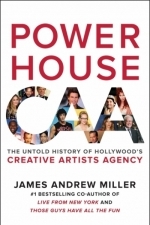
Powerhouse: The Untold Story of Hollywood's Creative Artists Agency
Book
An astonishing—and astonishingly entertaining—history of Hollywood’s transformation over the...
Biography business theatre
Kara Skinner (332 KP) rated The Robber Knight in Books
Sep 10, 2019
When you are fighting for the freedom of your people, falling in love with your enemy is not a great idea. Or is it? Ayla has to defend her castle and her people all on her own, with nobody to help her but a dark warrior she hates with all her heart.
Sir Reuben, the dreaded robber knight, has long been Ayla’s deadliest enemy. He has prayed on her and her people ever since her father fell ill, and she swore he would hang for his crimes. Now they are both trapped in her castle as the army of a far greater enemy approaches, and they have only one chance: stand together, or fall.
This book wasn’t bad, honestly. I’m a huge fan of historical fiction, and it had been awhile since I’ve read a medieval love story, so that was a nice change of pace.
The author is a historian, so there are a lot of little things in this book that you don’t see in a lot of other historical romance books. For instance,you can’t pull out arrows because there are often barbs attached to cause fatal wounds if pulled out. I did like learning about all of these facts. But sometimes Thier lets the historian in him gets the best of him, but more on that later.
Lady Ayla was a pretty interesting character. Headstrong and wise for her years, she is very noble and progressive. She has all of the makings for a great leader– with the exception of knowledge. I loved how kind and committed she was to her people and I love the fact that she has some spunk. I mean, if I’m getting robbed in the forest by this random stranger, then I hope I would swear him out too (of course, if I could beat him up and get away, then that’s even better, but Ayla doesn’t have much self-defense skills). But there were many times that she was annoying, like her insistence on being near battles, even before she started treating the sick. And how she tried to manage Sir Isenbard during battle. She had called on him for help because he was an experienced knight, and now she was questioning his commands and strategies in the heat of battle!
Mostly, though, I really did like Ayla. She defines the idea of nobility. With war inevitable, she’s willing to ride personally to the edges of her land to warn her subjects and she is always at the outskirts of battle to help care for the wounded. She invites everyone into the castle for their safety and rations herself as well as the others to conserve food. She’s even willing to corrupt herself to save her people.
Reuben is an excellent character as well, although it did take me awhile to like him. In the beginning he fell a little flat. It’s clear that he used to be a knight but something happened and now he robs people for his own greed. A near-death experience and being saved by Lady Ayla reawakens the humanity in him. And apparently also some depth.
In the beginning of the book he spends a lot of his time admiring his loot and laughing about his victims, who thought they had a right to steal from him. But that’s all he does. We have no real insight into his character or backstory until after he’s in Ayla’s care. Only then are there hints of a bad history where he had been arrested many times, been tortured, and had at one point been a member of respectable society. If it weren’t for the fact that I liked Ayla’a character and the plot so far, I probably would have stopped reading.
Thier is a writer who has really good potential in becoming a great romance writer, especially for historical fiction. The plots have some unique twists that are augmented by his knowledge of history and after Reuben’s character shaped up, he was an excellent love interest. But there is one huge problem with this story: the footnotes.
There are so many footnotes throughout most of the book that I feel like I’m reading a history textbook, which is not good when I usually read romance novels to take a break from homework. Not only are they distracting and unnecessary, but they are also rude and condescending. Sure, sometimes they were useful, like in explaining the references to the seven princes of hell. Another one was a pretty funny anecdote about how one of his readers had actually confirmed that lard burns and that burning arrows work because they had actually done it. There is also a lot of wit throughout the footnotes which is pretty amusing. But most of the time, they were annoying.
For instance, Robert Thier thought it was necessary to include a footnote about how witches were considered bad during medieval times. Seriously? Even if someone failed history, we know that witches are not considered fine, upstanding citizens. Or maybe he thinks all of us have been locked in our rooms with no books, internet or television for our entire lives and for the month of October we all miraculously fell into a coma so we couldn’t see the giant blow-up witch in the neighbor’s yard. And then we’d all wake up singing Christmas carols after the month long coma without a care in the world because this happens every year so we don’t know what a witch is. (I’m developing a conspiracy theory about how these strange comas was caused by witchcraft.)
Maybe Thier assumed that instead of us thinking Reuben was scared of witches when he wondered if Ayla was one, we just thought he was commenting on how much Ayla looked like Sandra Bullock.
And one of the footnotes was just plain offensive. Here is the line of text that the footnote is attached to: “Heel! Abominable villain! You dare defy me?” (page 74)
Now, here’s the footnote: “Sorry to disappoint the ladies, but this doesn’t refer to high heels. It is a medieval term for a very nasty person.”
Excuse me? Did you just assume that I thought it meant high heels and that would make me excited? What world do you live in?
Apparently he thinks “the ladies” are so dumb that we are incapable of taking context clues and we immediately think everything relates back to fashion. Maybe I didn’t know it meant “very nasty person”, but it’s pretty clear it’s a swear or insult of sometime, not a freaking Jimmy Choo. Does he just imagine us thinking high heel every time we hear the word?
“She broke his nose with the heel of her hand.” Oh. High heel!
“Heel, fido! I said heel!” Oh. High heel!
“It will take one or two days for your cut to heal.” Oh. High heel! (Because if he thinks we don’t understand the difference between uncomfortable footwear and an insult, then he probably thinks we can’t spell, either).
But hey, at least Robert Thier thinks women can memorize stuff, because the footnote links stop as the vocabulary is repeated instead of new terms being introduced.
Aside from the footnotes, I really do like this book, and I can’t wait to read the second part of it, which I’ll read soon. Thier still has a long way to go, but I think after he has more experience, he’ll write some great books.
Sir Reuben, the dreaded robber knight, has long been Ayla’s deadliest enemy. He has prayed on her and her people ever since her father fell ill, and she swore he would hang for his crimes. Now they are both trapped in her castle as the army of a far greater enemy approaches, and they have only one chance: stand together, or fall.
This book wasn’t bad, honestly. I’m a huge fan of historical fiction, and it had been awhile since I’ve read a medieval love story, so that was a nice change of pace.
The author is a historian, so there are a lot of little things in this book that you don’t see in a lot of other historical romance books. For instance,you can’t pull out arrows because there are often barbs attached to cause fatal wounds if pulled out. I did like learning about all of these facts. But sometimes Thier lets the historian in him gets the best of him, but more on that later.
Lady Ayla was a pretty interesting character. Headstrong and wise for her years, she is very noble and progressive. She has all of the makings for a great leader– with the exception of knowledge. I loved how kind and committed she was to her people and I love the fact that she has some spunk. I mean, if I’m getting robbed in the forest by this random stranger, then I hope I would swear him out too (of course, if I could beat him up and get away, then that’s even better, but Ayla doesn’t have much self-defense skills). But there were many times that she was annoying, like her insistence on being near battles, even before she started treating the sick. And how she tried to manage Sir Isenbard during battle. She had called on him for help because he was an experienced knight, and now she was questioning his commands and strategies in the heat of battle!
Mostly, though, I really did like Ayla. She defines the idea of nobility. With war inevitable, she’s willing to ride personally to the edges of her land to warn her subjects and she is always at the outskirts of battle to help care for the wounded. She invites everyone into the castle for their safety and rations herself as well as the others to conserve food. She’s even willing to corrupt herself to save her people.
Reuben is an excellent character as well, although it did take me awhile to like him. In the beginning he fell a little flat. It’s clear that he used to be a knight but something happened and now he robs people for his own greed. A near-death experience and being saved by Lady Ayla reawakens the humanity in him. And apparently also some depth.
In the beginning of the book he spends a lot of his time admiring his loot and laughing about his victims, who thought they had a right to steal from him. But that’s all he does. We have no real insight into his character or backstory until after he’s in Ayla’s care. Only then are there hints of a bad history where he had been arrested many times, been tortured, and had at one point been a member of respectable society. If it weren’t for the fact that I liked Ayla’a character and the plot so far, I probably would have stopped reading.
Thier is a writer who has really good potential in becoming a great romance writer, especially for historical fiction. The plots have some unique twists that are augmented by his knowledge of history and after Reuben’s character shaped up, he was an excellent love interest. But there is one huge problem with this story: the footnotes.
There are so many footnotes throughout most of the book that I feel like I’m reading a history textbook, which is not good when I usually read romance novels to take a break from homework. Not only are they distracting and unnecessary, but they are also rude and condescending. Sure, sometimes they were useful, like in explaining the references to the seven princes of hell. Another one was a pretty funny anecdote about how one of his readers had actually confirmed that lard burns and that burning arrows work because they had actually done it. There is also a lot of wit throughout the footnotes which is pretty amusing. But most of the time, they were annoying.
For instance, Robert Thier thought it was necessary to include a footnote about how witches were considered bad during medieval times. Seriously? Even if someone failed history, we know that witches are not considered fine, upstanding citizens. Or maybe he thinks all of us have been locked in our rooms with no books, internet or television for our entire lives and for the month of October we all miraculously fell into a coma so we couldn’t see the giant blow-up witch in the neighbor’s yard. And then we’d all wake up singing Christmas carols after the month long coma without a care in the world because this happens every year so we don’t know what a witch is. (I’m developing a conspiracy theory about how these strange comas was caused by witchcraft.)
Maybe Thier assumed that instead of us thinking Reuben was scared of witches when he wondered if Ayla was one, we just thought he was commenting on how much Ayla looked like Sandra Bullock.
And one of the footnotes was just plain offensive. Here is the line of text that the footnote is attached to: “Heel! Abominable villain! You dare defy me?” (page 74)
Now, here’s the footnote: “Sorry to disappoint the ladies, but this doesn’t refer to high heels. It is a medieval term for a very nasty person.”
Excuse me? Did you just assume that I thought it meant high heels and that would make me excited? What world do you live in?
Apparently he thinks “the ladies” are so dumb that we are incapable of taking context clues and we immediately think everything relates back to fashion. Maybe I didn’t know it meant “very nasty person”, but it’s pretty clear it’s a swear or insult of sometime, not a freaking Jimmy Choo. Does he just imagine us thinking high heel every time we hear the word?
“She broke his nose with the heel of her hand.” Oh. High heel!
“Heel, fido! I said heel!” Oh. High heel!
“It will take one or two days for your cut to heal.” Oh. High heel! (Because if he thinks we don’t understand the difference between uncomfortable footwear and an insult, then he probably thinks we can’t spell, either).
But hey, at least Robert Thier thinks women can memorize stuff, because the footnote links stop as the vocabulary is repeated instead of new terms being introduced.
Aside from the footnotes, I really do like this book, and I can’t wait to read the second part of it, which I’ll read soon. Thier still has a long way to go, but I think after he has more experience, he’ll write some great books.
Darren (1599 KP) rated Dark Crimes (2018) in Movies
Jul 25, 2019
Story: Dark Crimes starts when Tadek (Carrey) still investigating the murder of a police officer, gets a new lead when Kozlov (Csokas) writes a new book which has an eerily similarity to the murder, leading him to take a dangerous road investigating the murder, which includes challenge the former girlfriend Kasia (Gainsbourg).
The investigation has plenty of ties to the secret sex club known as the cage, where the men get to do whatever they want to the women, Tadek must put his professional and person life on the line to get to the bottom of this investigations.
Thoughts on Dark Crimes
Characters – Tadek is a police officer, he is preparing for retirement (I think) only he wants to solve one final case, which involves the murder of a fellow officer, he goes down dangerous paths which put his career on the line, his marriage on the line, hoping to find the answers. Kozlov is an author that has written a book that sounds too similar to the unsolved case, he becomes the target of the investigation because of his history with the known sex club. Kasia is a former worker in the club, she does have a connection to Kozlov and the victim.
Performances – Jim Carrey is an actor that I like seeing him doing serious roles, sadly, this is one of his worst performances in a long time, he can keep the accent up jumping around all over the place. Marton Csokas usually does well in film, but because the character isn’t very interesting, he struggles to keep our attention. Charlotte Gainsbourg disappoints too, she does everything we expect her to without making the impact.
Story – The story follows a detective that is investigating the murder of a fellow officer that could have found the confession inside a novel, which leads him to target the author in search for the truth. The problem here is we get slow moving conversations which don’t go anywhere, we don’t get into the evidence of the case, it just seems to be watching one man starting to go too far in his search. The case doesn’t seem long enough to make feature film story either.
Crime – The crime side of the film follows the investigation into the murder of a police officer which might be opened up again, it never feels urgent either.
Settings – The film uses the settings to show how the club could be easily accessed without needing to be too far away.
Scene of the Movie – Nothing.
That Moment That Annoyed Me – The dragging story.
Final Thoughts – This is one of the worst crime stories because it just never feels like the case is that important.
Overall: Just a drag.
The investigation has plenty of ties to the secret sex club known as the cage, where the men get to do whatever they want to the women, Tadek must put his professional and person life on the line to get to the bottom of this investigations.
Thoughts on Dark Crimes
Characters – Tadek is a police officer, he is preparing for retirement (I think) only he wants to solve one final case, which involves the murder of a fellow officer, he goes down dangerous paths which put his career on the line, his marriage on the line, hoping to find the answers. Kozlov is an author that has written a book that sounds too similar to the unsolved case, he becomes the target of the investigation because of his history with the known sex club. Kasia is a former worker in the club, she does have a connection to Kozlov and the victim.
Performances – Jim Carrey is an actor that I like seeing him doing serious roles, sadly, this is one of his worst performances in a long time, he can keep the accent up jumping around all over the place. Marton Csokas usually does well in film, but because the character isn’t very interesting, he struggles to keep our attention. Charlotte Gainsbourg disappoints too, she does everything we expect her to without making the impact.
Story – The story follows a detective that is investigating the murder of a fellow officer that could have found the confession inside a novel, which leads him to target the author in search for the truth. The problem here is we get slow moving conversations which don’t go anywhere, we don’t get into the evidence of the case, it just seems to be watching one man starting to go too far in his search. The case doesn’t seem long enough to make feature film story either.
Crime – The crime side of the film follows the investigation into the murder of a police officer which might be opened up again, it never feels urgent either.
Settings – The film uses the settings to show how the club could be easily accessed without needing to be too far away.
Scene of the Movie – Nothing.
That Moment That Annoyed Me – The dragging story.
Final Thoughts – This is one of the worst crime stories because it just never feels like the case is that important.
Overall: Just a drag.
Movie Metropolis (309 KP) rated Ghostbusters (2016) in Movies
Jun 11, 2019
I ain't afraid of no reboot
So it’s here. One of the most reviled films of the decade before it was even released; the Ghostbusters reboot has a tough job persuading fans of the original films and newcomers alike that it’s worth their time.
With director Paul Feig, stars like Melissa McCarthy and Chris Hemsworth and the backing of the series’ previous stars, it’s certainly got a lot going for it, but does the finished product soar or deserve all those dislikes on YouTube? The most disliked film trailer in YouTube history.
Paranormal researcher Abby Yates (Melissa McCarthy) and physicist Erin Gilbert (Kristen Wiig) are trying to prove that ghosts exist in modern society. When strange apparitions appear in Manhattan, Gilbert and Yates turn to engineer Jillian Holtzmann (Kate McKinnon) for help. Also joining the team is Patty Tolan (Leslie Jones), a lifelong New Yorker who knows the city inside and out. Armed with proton packs and plenty of attitude, the four women prepare for an epic battle as thousands of ghosts descend on Times Square.
To look at, Ghostbusters is absolutely stunning with breath-taking CGI coupled with sweeping shots of New York’s famous skyline. With the exception of The Jungle Book, there simply hasn’t been a film so far this year that has looked this good. The ghouls are rendered with brilliant special effects that culminate at the finale for a cracking female-led battle and Slimer even makes an appearance – what more could you ask for?
This is also a witty, occasionally hilarious and on the whole reasonably funny film that utilises Paul Feig’s knack at scriptwriting and the talents of its exceptional cast very well. Melissa McCarthy’s presence proves just what a team she and Feig are, with Chris Hemsworth providing some of the film’s best one-liners.
But the true surprise is in Kate McKinnon. Her wacky, over-the-top character has been tremendously well written and is a joy to watch on screen, especially in the film’s final act. Leslie Jones and Kristen Wiig each make an impact with the former in particular being very funny indeed. The cameos are all present and correct too, with the majority of the previous film’s main cast returning in some small way.
There are a couple of flaws. When you think of Paul Feig then Bridesmaids will probably spring to mind. Then perhaps The Heat or Spy? All these films were given a 15 certification by the BBFC and they used that certificate to its full potential. Ghostbusters is given the much-maligned 12A rating meaning it’s not as immediately hilarious as those films.
That’s not to say it isn’t funny, in fact, part of the humour is derived from spotting references to its much-loved predecessors, but it doesn’t have you rolling about the aisles like Feig’s earlier works.
The story does occasionally suffer from the pressures of influence, with the original film’s footprint well and truly stamped throughout. Nevertheless, this isn’t a real drag and the taut 116 minute running time keeps things moving along nicely with the highlights being the group’s inception and interactions.
Ghostbusters fans; you can rest easy. This isn’t meant to step on the toes of its wonderful predecessors at all. What it has achieved however is to provide its audience, new generation or old, with cracking special effects, a decent, well-written script and some dry, subtle humour. It’s one of the best films of the year so far and no publicity is bad publicity.
https://moviemetropolis.net/2016/07/12/i-aint-afraid-of-no-reboot-ghostbusters-review/
With director Paul Feig, stars like Melissa McCarthy and Chris Hemsworth and the backing of the series’ previous stars, it’s certainly got a lot going for it, but does the finished product soar or deserve all those dislikes on YouTube? The most disliked film trailer in YouTube history.
Paranormal researcher Abby Yates (Melissa McCarthy) and physicist Erin Gilbert (Kristen Wiig) are trying to prove that ghosts exist in modern society. When strange apparitions appear in Manhattan, Gilbert and Yates turn to engineer Jillian Holtzmann (Kate McKinnon) for help. Also joining the team is Patty Tolan (Leslie Jones), a lifelong New Yorker who knows the city inside and out. Armed with proton packs and plenty of attitude, the four women prepare for an epic battle as thousands of ghosts descend on Times Square.
To look at, Ghostbusters is absolutely stunning with breath-taking CGI coupled with sweeping shots of New York’s famous skyline. With the exception of The Jungle Book, there simply hasn’t been a film so far this year that has looked this good. The ghouls are rendered with brilliant special effects that culminate at the finale for a cracking female-led battle and Slimer even makes an appearance – what more could you ask for?
This is also a witty, occasionally hilarious and on the whole reasonably funny film that utilises Paul Feig’s knack at scriptwriting and the talents of its exceptional cast very well. Melissa McCarthy’s presence proves just what a team she and Feig are, with Chris Hemsworth providing some of the film’s best one-liners.
But the true surprise is in Kate McKinnon. Her wacky, over-the-top character has been tremendously well written and is a joy to watch on screen, especially in the film’s final act. Leslie Jones and Kristen Wiig each make an impact with the former in particular being very funny indeed. The cameos are all present and correct too, with the majority of the previous film’s main cast returning in some small way.
There are a couple of flaws. When you think of Paul Feig then Bridesmaids will probably spring to mind. Then perhaps The Heat or Spy? All these films were given a 15 certification by the BBFC and they used that certificate to its full potential. Ghostbusters is given the much-maligned 12A rating meaning it’s not as immediately hilarious as those films.
That’s not to say it isn’t funny, in fact, part of the humour is derived from spotting references to its much-loved predecessors, but it doesn’t have you rolling about the aisles like Feig’s earlier works.
The story does occasionally suffer from the pressures of influence, with the original film’s footprint well and truly stamped throughout. Nevertheless, this isn’t a real drag and the taut 116 minute running time keeps things moving along nicely with the highlights being the group’s inception and interactions.
Ghostbusters fans; you can rest easy. This isn’t meant to step on the toes of its wonderful predecessors at all. What it has achieved however is to provide its audience, new generation or old, with cracking special effects, a decent, well-written script and some dry, subtle humour. It’s one of the best films of the year so far and no publicity is bad publicity.
https://moviemetropolis.net/2016/07/12/i-aint-afraid-of-no-reboot-ghostbusters-review/
The original is better
I received this book for free through Goodreads First Reads.
Six bestselling authors have taken on the task of writing modern retellings of the complete works of Jane Austen. Alexander McCall Smith has successfully taken on the challenge of bringing Emma into the 21st century. Although the settings and characters remain the same the contemporary clothing, vehicles and ideas are something that the reader can relate to.
As fans of Jane Austen will already know, Emma is about rich, single Emma Woodhouse who, despite the disapproval of her good friend George Knightley, enjoys interfering in the lives of others, particularly where romance is concerned. Her meddling backfires when her plan to match her friend Harriet Smith with the boring Philip Elton has disastrous consequences.
Alexander McCall Smith’s version of Emma has more focus on the life of Mr. Woodhouse, Emma’s father, than the original did. He gives an account of Henry Woodhouse’s history and over emphasizes his anxieties about health and safety. Mr. Woodhouse’s concerns are constantly cropping up throughout the novel adding a little humour to the story.
One concern about this modern adaptation is that the writing style was overly formal. If it were not for the references to the current clothing fashions, motorcars and women attending university, the book could have been set during Jane Austen’s lifetime. Take, for example, the character Anne Taylor. Mr. Woodhouse hires Miss Taylor as a governess for his motherless daughters. Miss Taylor’s approach to the girls and her prim and proper use of language made her seem antiquated. She would not have looked out of place amongst other well-known governesses or nannies such as Mary Poppins or Nurse Matilda.
Occasionally it felt that Alexander McCall Smith was mocking the modern world, for example the activities of the younger generation or the way people speak. Whilst this may appeal to older readers who may disapprove of the recent developments and changes in the Western world; it alienates the teenagers and young adults who have grown up with modern technology.
There is no doubt that Alexander McCall Smith has done an excellent job at retelling such a famous novel, however to be a complete modern retelling I think everything needs to be brought into the 21st century. This would include all the characters and the style of language it is written in.
Six bestselling authors have taken on the task of writing modern retellings of the complete works of Jane Austen. Alexander McCall Smith has successfully taken on the challenge of bringing Emma into the 21st century. Although the settings and characters remain the same the contemporary clothing, vehicles and ideas are something that the reader can relate to.
As fans of Jane Austen will already know, Emma is about rich, single Emma Woodhouse who, despite the disapproval of her good friend George Knightley, enjoys interfering in the lives of others, particularly where romance is concerned. Her meddling backfires when her plan to match her friend Harriet Smith with the boring Philip Elton has disastrous consequences.
Alexander McCall Smith’s version of Emma has more focus on the life of Mr. Woodhouse, Emma’s father, than the original did. He gives an account of Henry Woodhouse’s history and over emphasizes his anxieties about health and safety. Mr. Woodhouse’s concerns are constantly cropping up throughout the novel adding a little humour to the story.
One concern about this modern adaptation is that the writing style was overly formal. If it were not for the references to the current clothing fashions, motorcars and women attending university, the book could have been set during Jane Austen’s lifetime. Take, for example, the character Anne Taylor. Mr. Woodhouse hires Miss Taylor as a governess for his motherless daughters. Miss Taylor’s approach to the girls and her prim and proper use of language made her seem antiquated. She would not have looked out of place amongst other well-known governesses or nannies such as Mary Poppins or Nurse Matilda.
Occasionally it felt that Alexander McCall Smith was mocking the modern world, for example the activities of the younger generation or the way people speak. Whilst this may appeal to older readers who may disapprove of the recent developments and changes in the Western world; it alienates the teenagers and young adults who have grown up with modern technology.
There is no doubt that Alexander McCall Smith has done an excellent job at retelling such a famous novel, however to be a complete modern retelling I think everything needs to be brought into the 21st century. This would include all the characters and the style of language it is written in.
<i>I received this book for free through Goodreads First Reads.</i>
Six bestselling authors have taken on the task of writing modern retellings of the complete works of Jane Austen. Alexander McCall Smith has successfully taken on the challenge of bringing <i>Emma</i> into the 21st century. Although the settings and characters remain the same the contemporary clothing, vehicles and ideas are something that the reader can relate to.
As fans of Jane Austen will already know, <i>Emma</i> is about rich, single Emma Woodhouse who, despite the disapproval of her good friend George Knightley, enjoys interfering in the lives of others, particularly where romance is concerned. Her meddling backfires when her plan to match her friend Harriet Smith with the boring Philip Elton has disastrous consequences.
Alexander McCall Smith’s version of <i>Emma</i> has more focus on the life of Mr. Woodhouse, Emma’s father, than the original did. He gives an account of Henry Woodhouse’s history and over emphasizes his anxieties about health and safety. Mr. Woodhouse’s concerns are constantly cropping up throughout the novel adding a little humour to the story.
One concern about this modern adaptation is that the writing style was overly formal. If it were not for the references to the current clothing fashions, motorcars and women attending university, the book could have been set during Jane Austen’s lifetime. Take, for example, the character Anne Taylor. Mr. Woodhouse hires Miss Taylor as a governess for his motherless daughters. Miss Taylor’s approach to the girls and her prim and proper use of language made her seem antiquated. She would not have looked out of place amongst other well-known governesses or nannies such as <i>Mary Poppins</i> or <i>Nurse Matilda</i>.
Occasionally it felt that Alexander McCall Smith was mocking the modern world, for example the activities of the younger generation or the way people speak. Whilst this may appeal to older readers who may disapprove of the recent developments and changes in the Western world; it alienates the teenagers and young adults who have grown up with modern technology.
There is no doubt that Alexander McCall Smith has done an excellent job at retelling such a famous novel, however to be a complete modern retelling I think everything needs to be brought into the 21st century. This would include all the characters and the style of language it is written in.
Six bestselling authors have taken on the task of writing modern retellings of the complete works of Jane Austen. Alexander McCall Smith has successfully taken on the challenge of bringing <i>Emma</i> into the 21st century. Although the settings and characters remain the same the contemporary clothing, vehicles and ideas are something that the reader can relate to.
As fans of Jane Austen will already know, <i>Emma</i> is about rich, single Emma Woodhouse who, despite the disapproval of her good friend George Knightley, enjoys interfering in the lives of others, particularly where romance is concerned. Her meddling backfires when her plan to match her friend Harriet Smith with the boring Philip Elton has disastrous consequences.
Alexander McCall Smith’s version of <i>Emma</i> has more focus on the life of Mr. Woodhouse, Emma’s father, than the original did. He gives an account of Henry Woodhouse’s history and over emphasizes his anxieties about health and safety. Mr. Woodhouse’s concerns are constantly cropping up throughout the novel adding a little humour to the story.
One concern about this modern adaptation is that the writing style was overly formal. If it were not for the references to the current clothing fashions, motorcars and women attending university, the book could have been set during Jane Austen’s lifetime. Take, for example, the character Anne Taylor. Mr. Woodhouse hires Miss Taylor as a governess for his motherless daughters. Miss Taylor’s approach to the girls and her prim and proper use of language made her seem antiquated. She would not have looked out of place amongst other well-known governesses or nannies such as <i>Mary Poppins</i> or <i>Nurse Matilda</i>.
Occasionally it felt that Alexander McCall Smith was mocking the modern world, for example the activities of the younger generation or the way people speak. Whilst this may appeal to older readers who may disapprove of the recent developments and changes in the Western world; it alienates the teenagers and young adults who have grown up with modern technology.
There is no doubt that Alexander McCall Smith has done an excellent job at retelling such a famous novel, however to be a complete modern retelling I think everything needs to be brought into the 21st century. This would include all the characters and the style of language it is written in.
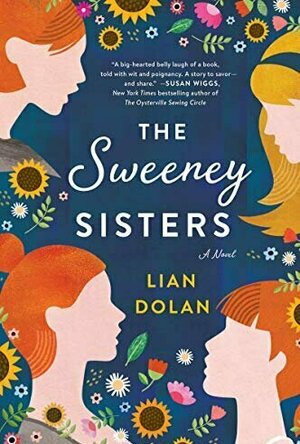
The Sweeney Sisters
Book
"This is a big-hearted belly-laugh of a book, told with wit and poignancy. Family secrets, laughter...

Anonymous Chat Rooms, Dating
Dating, Lifestyle and Social Networking
App
Cool chat rooms. Self-destructing messages. Talk about anything with strangers. Meet new people, ask...
